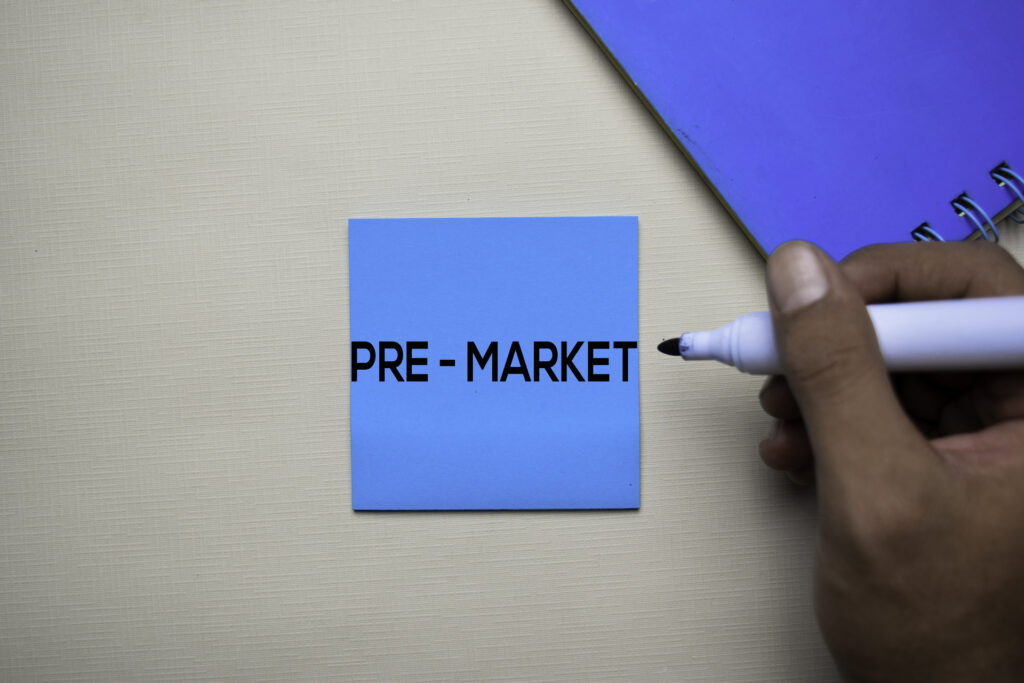Table of contents:
You have probably spent months, perhaps even years, developing a product, and now you want to launch. The first thing you should know is that a product launch is not a small feat—just ask the team behind Spotify’s Car Thing, which, despite extensive development, failed to gain traction due to insufficient pre-launch marketing validation.
Renowned Harvard Business School professor Clayton Christensen reports that out of approximately 30,000 new products introduced to the market each year, a staggering 95% fail.
A pre-launch marketing strategy ensures your product doesn’t meet the same fate. It builds awareness and validates your product, ensuring that upon its debut, people are ready and eager to buy. You need to put in a lot of work to create buzz and generate anticipation for your product to get the attention it deserves.
Let’s explore six proven pre-launch marketing techniques that have helped successful products make their mark. As we move forward, we will delve into various pre-launch marketing techniques that establish the foundation for a successful launch.
6 Pre-Launch Marketing Techniques To Enhance Product Impact
Before releasing the product into the market, pre-launch builds and engages your audience early. This strategy can help you refine the product, identify opportunities, and gain customers right away. Take a look at these six powerful techniques and see which one can enhance your product’s impact after launch.
#1 Build a Hype-Filled Landing Page
Consider the landing page as an online shopping window for your unreleased product. This is because it serves as a platform for potential customers to learn about your upcoming product. Preparing a well-designed and informative landing page is important to act as a teaser and provide enough information to spark curiosity in your audience.
On the page, you can include a product description that communicates your value proposition, a countdown to the launch date, and a simple email sign-up form for users. These emails can help you capture high-quality leads when your product goes live. Optimizing your page is also valuable so it is accessible to users on desktop and mobile phones. This will set the stage for massive engagement during the launch.
Your landing page should have the following key elements:
- A compelling product description that communicates your value proposition
- A countdown timer (like Apple’s famous product launch countdowns)
- An email sign-up form for capturing leads
- Mobile optimization (as of September 2024, mobile device users account for 63.38% of total website traffic).
#2 Utilize Social Media Teasers
OnePlus masterfully demonstrated the power of social media teasers when launching their first phone. Their “Smash the Past” campaign, where they invited people to destroy their old phones for a chance to buy the OnePlus One for $1, generated massive viral attention.
Some more modern teaser examples include:
- BeReal’s cryptic Instagram posts before their app launch
- Tesla’s gradual reveal of Cybertruck features
- Dyson’s behind-the-scenes glimpses of their hair care product development
Social media teasers are a way of building excitement for a product launch. Today, many platforms are ideal for gradually revealing your product through drip-feeding content. You can spike their interest without giving everything away with behind-the-scenes content, sneak peeks, or short teaser videos.
Doing this will engage your audience and keep them anticipating more. Teaser campaigns, such as polls and online contests, can also effectively capture their attention. You could ask followers to guess what the new product might be or how it will benefit them. This creative and interactive marketing technique will boost organic reach and generate more buzz around the product.
#3 Start an Email Marketing Campaign Early
Casper Mattress executed this brilliantly before their launch, sending a series of educational emails about sleep science and mattress technology before revealing their product.
Just like all marketing activities, email marketing is still one of the most effective tools and should be at the top of your list for nurturing leads. The return on investment for email marketing is a notable $36 for each dollar invested.
You should not send a general email to your entire list for this campaign. What you do is have a pre-launch email sequence that introduces your product, explains how it solves a problem, and builds up credibility so they are willing to buy from you when you market.
You can build up engagement and increase it by adding offers for early-timers or a limited-time discount open to just subscribers. This approach allows you to attract a large number of individuals who express interest in your products through your email. Use this approach wisely because it is the best shot at establishing a positive relationship with potential customers.
A strategic email sequence might look like:
- Week 1: Industry problem introduction
- Week 2: Behind-the-scenes development story
- Week 3: Expert testimonials and early testing results
- Week 4: Early-bird offer announcement
#4 Partner with Influencers or Industry Experts
When Rihanna launched Fenty Beauty, she partnered with diverse beauty influencers months before the launch, creating anticipation through makeup tutorials and sneak peeks. This strategy led to $100 million in sales within the first 40 days.
Partnering with influencers can amplify your marketing efforts. Influencers and industry experts are public figures who have built trust and credibility with their network of followers. Making them allies during your pre-marketing stage can make your launch a success. You can reach your target audience and build excitement about your upcoming product through the people they trust.
These collaborations help expose your product to a wider audience and can create a sense of legitimacy and anticipation. You can also provide them with exclusive sneak peeks into your product, enabling them to provide candid reviews and shoutouts. This will encourage people to look at what you are offering. You just have to collaborate with influencers whose audience aligns with your target market.
#5 Run Pre-Order Campaigns or Giveaways
Nintendo Switch’s pre-order campaign is a masterclass in building anticipation. They sold 1.5 million units in pre-orders alone. Similarly, Tesla’s Cybertruck gathered over 250,000 pre-orders within a week of announcement, despite only requiring a $100 refundable deposit.
Pre-order campaigns are an excellent way to gauge the interest of potential customers and generate early sales. You can bring more people in by offering a limited number of pre-orders with special pricing or exclusive bonuses. Adding a giveaway to this campaign will build traffic and encourage people to act fast. Make sure to announce this campaign on your various marketing platforms.
This includes your email newsletter, website, and social media channels, where you can drive traffic and encourage new people to connect with your brand. For instance, you could initiate a challenge that requires users to complete a specific task while using your product. This type of pre-launch marketing strategy creates excitement, rewards your audience, and incentivizes them to spread the word.
Effective pre-order strategies include:
- Limited edition versions (like PlayStation’s special edition consoles)
- Early-bird pricing (as used by Peloton in their initial launch)
- Exclusive pre-order bonuses (similar to video game pre-order content)
#6 Host a Webinar or Live Q&A Session
Hosting a live webinar or Q&A session is a fantastic way to interact directly with potential customers. You can build excitement and win over new prospects by answering their questions and showing off your product’s unique features.
Zoom itself used this strategy effectively before launching new features, hosting interactive demos that doubled as training sessions. Utilize this virtual event to provide relevant and valuable information on the product, its benefits, and how it works.
Record the live event to use as content for your blog, social media, or email campaigns. Webinars are an effective tool for your pre-launch marketing efforts, as they facilitate the building of trust with guests.
The real-time interaction demonstrates your product’s value and enables you to address any concern. With this promotional strategy, you can connect and build rapport with your potential customers.
Successful webinar examples include:
- Adobe’s Creative Cloud feature preview sessions
- HubSpot’s product development roadmap presentations
- Notion’s community-focused feature announcement webinars
Conclusion
An effective pre-launch marketing strategy can distinguish a product that creates significant impact from one that barely makes a ripple. Just as Apple’s iPhone launches consistently generate massive anticipation through their coordinated pre-launch efforts, your product too can benefit from these proven techniques.
A product might not get the required attention and make its mark without a pre-launch technique. Creating one is the key to maximizing the impact of your product launch.
So, as you prepare to market your product, you must build anticipation and engage your audience early through social media teasers, influencer partnerships, or early email campaigns for a successful debut. These techniques will maximize your product’s impact in the marketplace.






